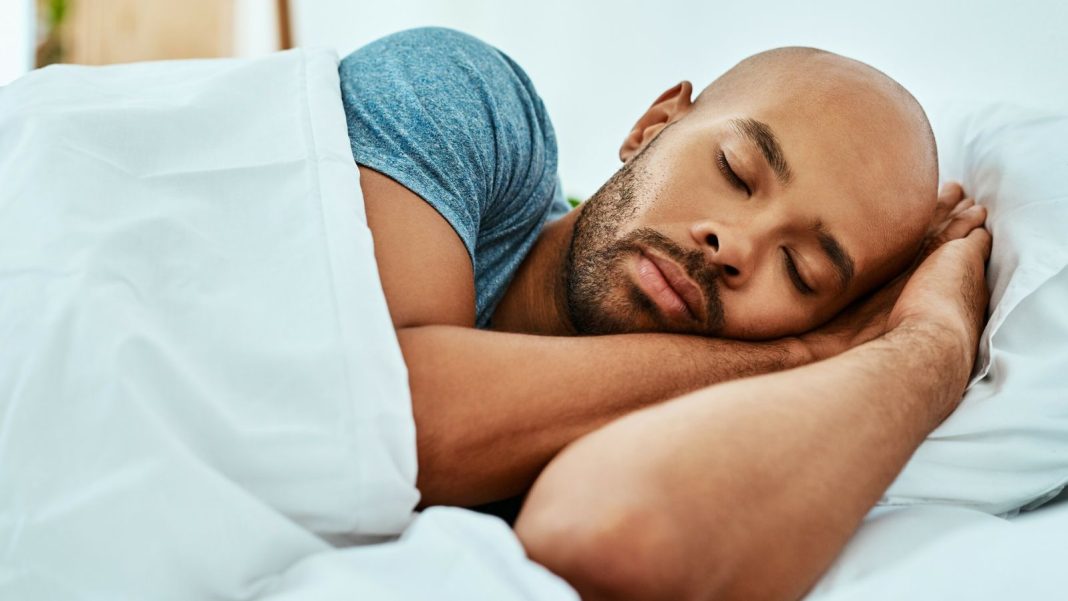Sleep is one of the handfuls of life-sustaining tasks (like food and drinking water) that we only seem to think about once a year when resolutions have us overanalyzing our routines in search of fault lines.
What most people find is that they do not get nearly enough—experts recommend seven to eight hours a night. In addition, those of us who do log enough time in bed on a daily basis are not as concerned as we need to be about the quality of those hours. Tossing and turning, getting up for a drink of water (or to pee, or to read a text), or being awoken by an uncomfortable temperature (whether it be to throw the blankets off in a sweaty rage or shiver into another pair of socks), are all common nightly occurrences.
You will know when your body is running on a half-tank: Insufficient sleep for a short time may make you more irritable and moody.
Moreover, the long-term effects of sleep deprivation are serious: insulin resistance, hypertension, cardiac problems, to name a few.
Sure, during the week things pop up at work that push your gym session back, which means you have a dinner date with your DVR at 10 p.m., but you can catch up on the weekends. Right? Sorry to break it to you, but sleeping until noon on Saturday does not build up a sleep bank you can borrow from come Monday. You cannot make up for lost sleep—that makes it important to aim for at least seven hours of sleep every night.
Since you can’t always control the early morning meetings, 10 p.m. season finales, or weeknight happy hours that somehow leave you stumbling into a diner at 2 a.m., it’s time to focus on small changes you can make to your daily routine that will help facilitate better sleep quantity and quality.
1. Take the TV out of the bedroom.
Finish your Netflix marathon in the living room, and then head to bed. Televisions are a major cause of insufficient sleep. The blue light, which suppresses melatonin production, and stimulating nature of some programs make falling asleep difficult. Even worse, many that cannot stay asleep turn it back on in the middle of the night. Some of you may be able to sleep through a tornado—the dull buzz of early a.m. infomercials will not wake the beast. But if you’re someone who has trouble sleeping, computers, video games, and anything else that shines a bright light into the retina is going to take whatever melatonin your body is beginning to produce at night and destroy it.
2. Make the bedroom a no-work zone.
Your bedroom is made for two things only: sleep and sex. Once your mind is trained otherwise, it makes it difficult to sleep. Resolve that you will not bring work related material or thoughts into the bedroom. Who knows, your sleep quality and your sex life may see a boost.
3. Learn to trigger your relaxation response.
When you’re running around all day like a chicken with its head cut off—hit the gym, chug smoothie on way to work, last-minute presentation, scarf down lunch on way to meeting—you can’t expect the stress to magically disappear the minute your head hits the pillow. That is why it is important to teach your body to calm down by eliciting the relaxation response, either by practicing it during the day or before bedtime. There are many ways to elicit this calming response—progressive muscle relaxation; meditation and abdominal breathing—which is the antithesis of the stress response that so many of us unfortunately experience in the bedroom. If you practice these techniques, many studies have demonstrated that your sleep will improve. In fact, I incorporate it, as do many sleep specialists, into my insomnia therapy.
4. Exercise at least 30 minutes, five days per week.
If new year’s resolutions and the holiday 15 haven’t convinced you it’s time to hit the gym, maybe this will: Exercise increases the levels of a neurotransmitter BDNP (Brain Derived Neurotrophic Factor), which decreases anxiety levels and promotes better equality sleep. Plus, if you exercise outside during the day, especially in the morning, exposure to sunlight strengthens your circadian rhythms making it easier to sleep at night.
5. Upgrade your mattress.
Ever think it may be what you are lying on that is to blame for all of that tossing and turning? If it’s over five years old, it may be time for a new one. If you suffer with aches and pains in bed maybe it’s time to get rid of that box spring and consider one of the newer sleep number or memory foam mattresses.
6. Set a sleep-wake schedule.
Even on weekends and days off (which we know is easier said than done). One of the more common mistakes people make is to skimp on sleep during the workweek and then try to catch up on weekends. It does not work. Cognitive problems that arise from insufficient sleep are not reversed by the extra sleep, and you throw your circadian clock off by sleeping in. Because you slept until noon on Saturday, you will be wide-awake Sunday night—but that alarm clock is still ringing at six, and so the cycle continues.
7. Skip the afternoon coffee break.
When that mid-afternoon slump hits, reach for a healthy snack or glass of water instead of the espresso, which may be the reason you are have a hard time falling, and staying, asleep. What you might not realize is that the caffeine you have become so dependent on has become the cause of your sleep problems. If you are consuming more than two cups of coffee daily and especially after noon, you might want to consider that it may no longer be the solution but is now the problem. As if that wasn’t enough of a buzzkill, chocolate contains caffeine, too.
Source: answersforsleep





